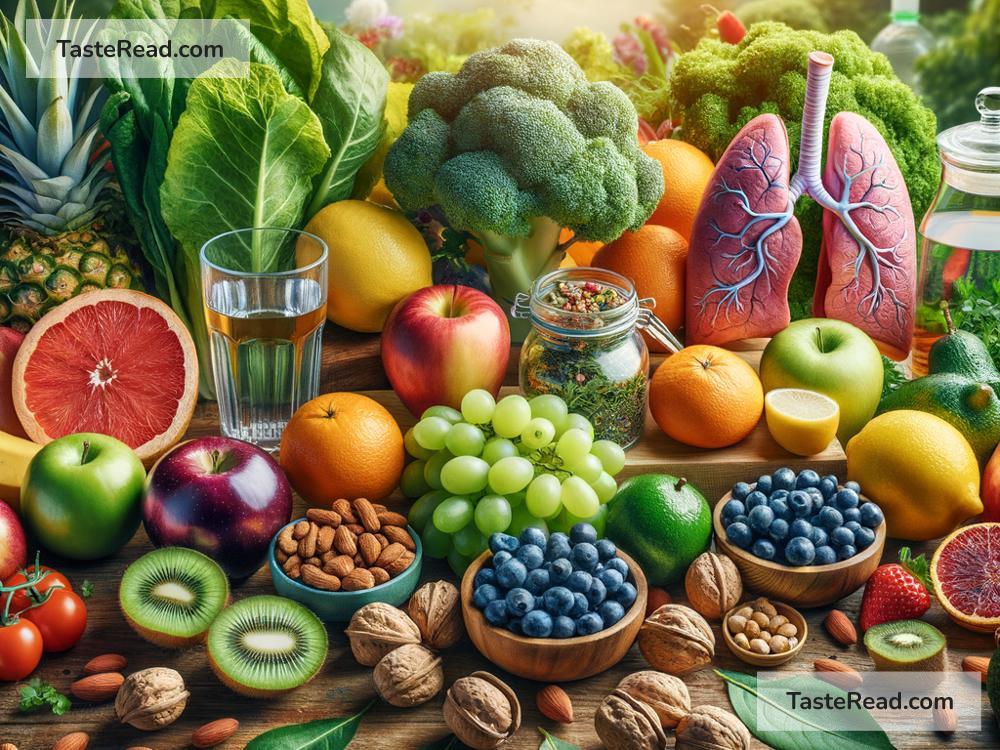Foods That Support Healthy Breathing
Breathing is one of the most important activities for sustaining life. Every breath we take brings oxygen into our lungs, fueling all the cells in our body. But did you know that the food you eat can influence how well you breathe? A healthy diet can support lung health, improve breathing, and even lower the risk of respiratory issues like asthma or lung infections. Let’s explore some foods that can help you breathe better—using simple language that everyone can understand.
Why Food Matters for Breathing
We often think of food as just fuel for energy, but it also plays a big role in keeping our organs healthy, including our lungs. Certain nutrients in foods can reduce inflammation in the airways, improve lung function, and fight harmful free radicals. These free radicals are unstable molecules that can damage your lungs over time, especially if you are exposed to pollution or smoke.
Eating the right foods can also strengthen your immune system so your body can fight off infections that affect your ability to breathe. By adding these foods to your regular diet, you can support healthier lungs and enjoy easier, smoother breathing.
Top Foods for Healthy Breathing
Here are some foods that can benefit your lungs and improve your ability to take deep, healthy breaths:
1. Leafy Greens
Spinach, kale, collard greens, and other leafy vegetables are packed with nutrients like magnesium and antioxidants. Magnesium helps relax the muscles, including those around the airways, making breathing easier. Leafy greens also contain vitamin C, which protects the lungs from damage caused by pollution or cigarette smoke.
2. Fruits Rich in Vitamin C
Speaking of vitamin C, fruits like oranges, strawberries, kiwi, and pineapples are great for supporting lung health. Vitamin C boosts immunity and helps your body fight off respiratory infections. It also helps your lungs work more efficiently, improving the flow of oxygen in your bloodstream.
3. Fatty Fish
Fatty fish such as salmon, mackerel, and sardines contain omega-3 fatty acids. These healthy fats are well-known for reducing inflammation in the body, including the airways. They may also lower the risk of asthma and improve overall lung function. If you’re not a fan of fish, you can get omega-3s from flaxseeds, walnuts, or chia seeds.
4. Nuts and Seeds
Nuts and seeds like almonds, sunflower seeds, and pumpkin seeds are rich in vitamin E. This vitamin is a powerful antioxidant that helps protect your lungs from harmful free radicals. It also supports healthy airflow and reduces inflammation, which is helpful if you have breathing challenges.
5. Apples
There’s an old saying: “An apple a day keeps the doctor away,” and it may apply to lung health too! Apples are high in antioxidants like flavonoids, which can protect your lungs and improve respiratory function. Studies have even suggested that eating apples regularly may lower the risk of asthma.
6. Green Tea
Green tea contains antioxidants called catechins, which help reduce inflammation and protect lung tissue from damage. Drinking green tea may help open up the airways, especially if you’re feeling congested. Plus, sipping a hot cup of green tea can be soothing to your throat.
7. Beets and Beet Greens
Beets and their leafy greens are excellent for lung health because they contain nitrates. Nitrates improve oxygen uptake in the body and make it easier for your lungs to deliver oxygen to the bloodstream. Adding beets to your salads or smoothies can give your lungs a helpful boost.
8. Whole Grains
Whole grains like oats, quinoa, and brown rice are rich in fiber and essential nutrients. They also support heart health, which is closely connected to lung health. A healthy heart enables better circulation, ensuring that oxygen is delivered efficiently throughout your body.
9. Garlic and Onions
Garlic and onions are not only great for flavoring dishes but also for supporting healthy lungs. These foods have anti-inflammatory and antibacterial properties that can help reduce swelling in the airways and prevent lung infections. Garlic also contains a compound called allicin, which improves lung function.
10. Berries
Blueberries, raspberries, and blackberries are loaded with antioxidants that protect your lungs from damage. They are also a great source of fiber, which is beneficial for overall health. Snack on berries for a lung-friendly treat or add them to your yogurt, oatmeal, or smoothies.
Foods to Avoid for Lung Health
While adding the foods listed above can improve your breathing, certain foods may worsen your respiratory health. For example:
- Processed Foods: Chips, cookies, and other packaged snacks may contain chemicals and preservatives that could irritate your lungs.
- Sugary Drinks: Sodas and energy drinks contain loads of sugar that can cause inflammation in the body and impact lung function.
- Excess Salt: Eating too much salt can lead to water retention, which can make breathing feel harder, especially if you have lung problems.
It’s best to avoid these foods or eat them only occasionally, especially if you want to support healthy breathing.
Conclusion
Healthy breathing starts with healthy eating. By incorporating lung-friendly foods like leafy greens, fruits, fatty fish, and nuts into your diet, you can protect your lungs and enjoy easier, more comfortable breaths. Pair these foods with regular exercise, fresh air, and staying hydrated for the best results. The more you care for your lungs today, the better they will serve you in the years to come.
So, the next time you’re planning a meal, think about what your lungs might enjoy. After all, healthy lungs mean happy breathing!


